
Pierre-Auguste Renoir Giclée Fine Art Prints 20 of 20
1841-1919
French Impressionist Painter
Pierre-Auguste Renoir was born on February 25, 1841, in Limoges, France. He was the sixth of seven children in a working-class family. His father, Léonard Renoir, was a tailor, and his mother, Marguerite Merlet, was a seamstress. In 1844, the family moved to Paris, where they lived near the Louvre, which would later influence Renoir's artistic development.
Renoir showed an early talent for drawing, and at the age of 13, he began an apprenticeship at a porcelain factory, where he painted designs on fine china. This experience helped him develop his skills in painting with delicate, luminous colors. However, the factory soon switched to using mechanical methods, and Renoir was forced to find other work.
In 1862, Renoir was accepted into the École des Beaux-Arts and began studying under Charles Gleyre. It was here that he met fellow artists Claude Monet, Alfred Sisley, and Frédéric Bazille, who would become lifelong friends and collaborators. Together, they formed the core of the Impressionist movement.
Renoir's early work was influenced by the Realist movement, but he soon developed his own unique style, characterized by his use of vibrant colors, fluid brushstrokes, and a focus on capturing the effects of light. He became known for his depictions of everyday life, landscapes, and especially his portraits, which often featured women and children.
In the 1870s, Renoir participated in the first Impressionist exhibitions, which were met with mixed reactions from critics and the public. Despite the initial controversy, Renoir's work began to gain recognition, and he started receiving commissions for portraits.
In the 1880s, Renoir's style evolved as he began to experiment with a more classical approach to painting, inspired by a trip to Italy in 1881. This period, known as his "Ingres period" or "dry period," saw him using more precise lines and a more subdued color palette. However, by the end of the decade, he returned to his earlier, more vibrant style.
Renoir's later years were marked by personal and professional success, as well as physical challenges. He continued to paint despite suffering from severe rheumatoid arthritis, which left him with limited mobility in his hands. He even had brushes strapped to his wrists to continue working. Renoir passed away on December 3, 1919, in Cagnes-sur-Mer, France, leaving behind a rich artistic legacy that continues to inspire and captivate audiences today.
Renoir showed an early talent for drawing, and at the age of 13, he began an apprenticeship at a porcelain factory, where he painted designs on fine china. This experience helped him develop his skills in painting with delicate, luminous colors. However, the factory soon switched to using mechanical methods, and Renoir was forced to find other work.
In 1862, Renoir was accepted into the École des Beaux-Arts and began studying under Charles Gleyre. It was here that he met fellow artists Claude Monet, Alfred Sisley, and Frédéric Bazille, who would become lifelong friends and collaborators. Together, they formed the core of the Impressionist movement.
Renoir's early work was influenced by the Realist movement, but he soon developed his own unique style, characterized by his use of vibrant colors, fluid brushstrokes, and a focus on capturing the effects of light. He became known for his depictions of everyday life, landscapes, and especially his portraits, which often featured women and children.
In the 1870s, Renoir participated in the first Impressionist exhibitions, which were met with mixed reactions from critics and the public. Despite the initial controversy, Renoir's work began to gain recognition, and he started receiving commissions for portraits.
In the 1880s, Renoir's style evolved as he began to experiment with a more classical approach to painting, inspired by a trip to Italy in 1881. This period, known as his "Ingres period" or "dry period," saw him using more precise lines and a more subdued color palette. However, by the end of the decade, he returned to his earlier, more vibrant style.
Renoir's later years were marked by personal and professional success, as well as physical challenges. He continued to paint despite suffering from severe rheumatoid arthritis, which left him with limited mobility in his hands. He even had brushes strapped to his wrists to continue working. Renoir passed away on December 3, 1919, in Cagnes-sur-Mer, France, leaving behind a rich artistic legacy that continues to inspire and captivate audiences today.
464 Renoir Artworks
Page 20 of 20
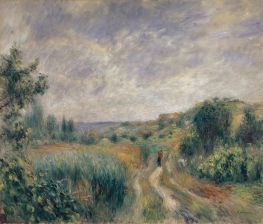
Giclée Canvas Print
$64.41
$64.41
SKU: 19340-RPA
Pierre-Auguste Renoir
Original Size:46.6 x 55.2 cm
Kunstmuseum, Basel, Switzerland
Pierre-Auguste Renoir
Original Size:46.6 x 55.2 cm
Kunstmuseum, Basel, Switzerland
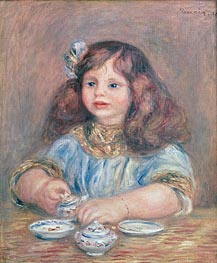
Giclée Canvas Print
$58.39
$58.39
SKU: 12438-RPA
Pierre-Auguste Renoir
Original Size:53 x 44 cm
Musee d'Orsay, Paris, France
Pierre-Auguste Renoir
Original Size:53 x 44 cm
Musee d'Orsay, Paris, France
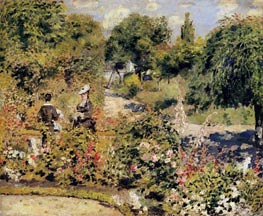
Giclée Canvas Print
$49.98
$49.98
SKU: 1853-RPA
Pierre-Auguste Renoir
Original Size:51 x 62 cm
Oskar Reinhart Museum, Winterthur, Switzerland
Pierre-Auguste Renoir
Original Size:51 x 62 cm
Oskar Reinhart Museum, Winterthur, Switzerland
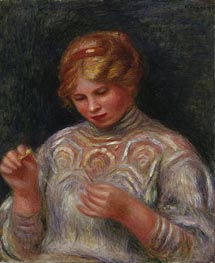
Giclée Canvas Print
$66.07
$66.07
SKU: 12420-RPA
Pierre-Auguste Renoir
Original Size:56.5 x 46.7 cm
Philadelphia Museum of Art, Pennsylvania, USA
Pierre-Auguste Renoir
Original Size:56.5 x 46.7 cm
Philadelphia Museum of Art, Pennsylvania, USA
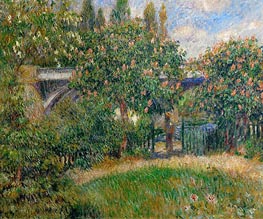
Giclée Canvas Print
$88.56
$88.56
SKU: 12436-RPA
Pierre-Auguste Renoir
Original Size:54 x 65.5 cm
Musee d'Orsay, Paris, France
Pierre-Auguste Renoir
Original Size:54 x 65.5 cm
Musee d'Orsay, Paris, France
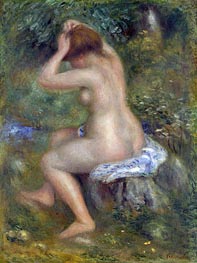
Giclée Canvas Print
$49.98
$49.98
SKU: 12480-RPA
Pierre-Auguste Renoir
Original Size:39.4 x 29.2 cm
National Gallery, London, United Kingdom
Pierre-Auguste Renoir
Original Size:39.4 x 29.2 cm
National Gallery, London, United Kingdom
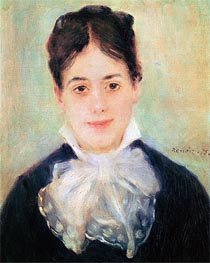
Giclée Canvas Print
$49.98
$49.98
SKU: 12588-RPA
Pierre-Auguste Renoir
Original Size:42 x 33 cm
Museu de Arte, Sao Paulo, Brazil
Pierre-Auguste Renoir
Original Size:42 x 33 cm
Museu de Arte, Sao Paulo, Brazil
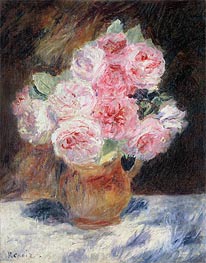
Giclée Canvas Print
$49.98
$49.98
SKU: 12503-RPA
Pierre-Auguste Renoir
Original Size:41.9 x 33.7 cm
Fred Jones Jr. Museum of Art at University of Oklahoma, Oklahoma, USA
Pierre-Auguste Renoir
Original Size:41.9 x 33.7 cm
Fred Jones Jr. Museum of Art at University of Oklahoma, Oklahoma, USA